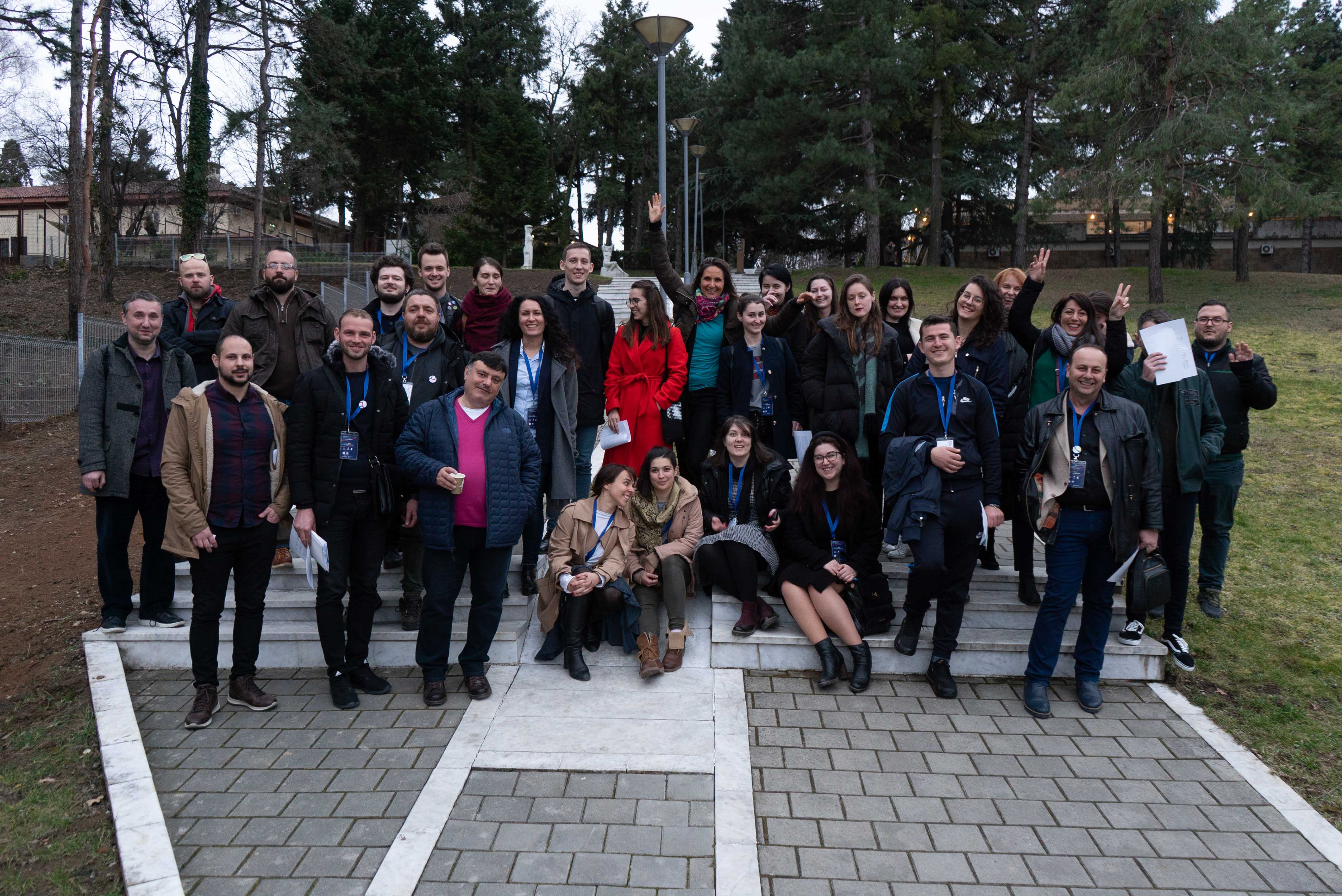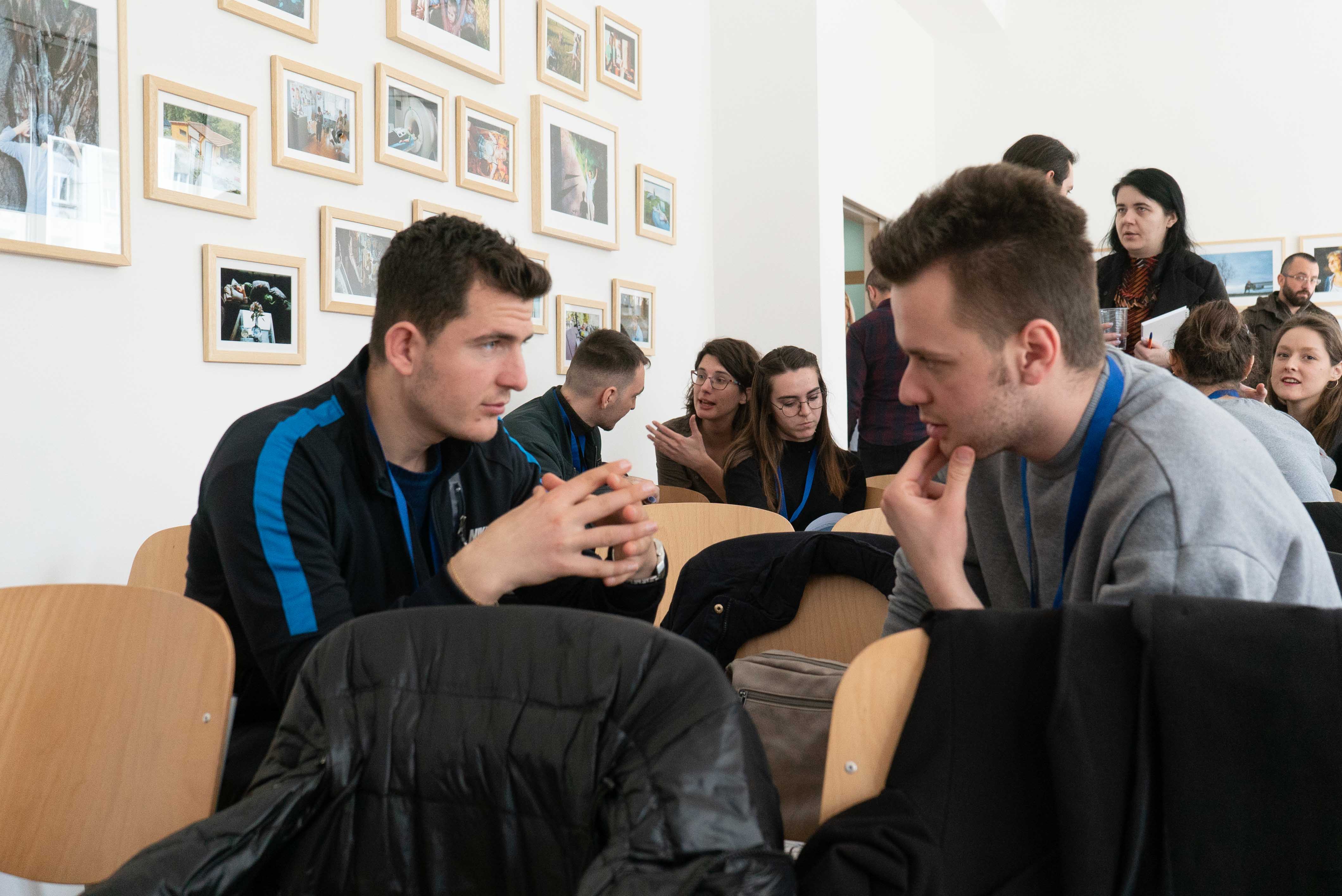When's the right time for cooperation in the Western Balkans? How to re-establish broken ties and make new contacts between artists, cultural workers, and citizens? In the turbulent times towards the end of the 20th century, followed by numerous economic crises and the coronavirus pandemic, cooperation in this part of Europe has continuously faced obstacles.
Even in times like these, there were people who remain committed to working together. “They spearheaded anti-war campaigns in culture, solidarity initiatives, petitions, performances…” says Jelena Mihajlov, manager of Creative Mentorship association. The association has launched a project entitled Transforming the Region One Conversation at A Time – Inspiring Youth Cultural Cooperation, bringing together experts and young people working in culture and arts in Serbia, Albania, and Bosnia and Herzegovina. They strive to improve ties and contacts in the Western Balkans, to lay a foundation for the creation of cultural networks of young, socially and politically woke people. “The young should know about previous initiatives. Not for the sake of general knowledge, but for the sake of spreading awareness that it is indeed possible to act differently and to stop history from repeating itself by investing in this form of cooperation,” Mihajlov notes.
The mentors in this project also take part in other regional cooperation projects that have kept the community spirit alive in the turbulent decades behind us. Building on the vast experience and knowledge of the region, each mentor is assigned a group consisting of three participants, one from Albania, Bosnia and Herzegovina, and Serbia each. One of the mentors is Marijana Cvetković, an art historian, a manager in culture, and a modern dance expert.

“I work with three amazing people—a young man from Albania and two girls, one from Serbia and the other from Bosnia and Herzegovina. They choose a topic and technique for their project, while I facilitate and steer them through the process. I believe the most important thing we’re contributing to is the sense and experience of cooperation,” Cvetković explains.
Marijana’s group picked a compelling, yet demanding subject—a comparative overview and affirmation of the socialist spomenik heritage in Albania and Yugoslavia. Another project dealing with a comparative overview of cultural cooperation was led by Kristina Kapetanov, a young artist from Belgrade working in children’s theatre. The pandemic, coupled with extraordinary working and living conditions during the state of emergency, has made them change the subject of their project.

“We realised that in current situation when borders are closed and our activities are limited in one way or another, it would be more useful to show how each of us is dealing with the pandemic. How we struggle to keep culture and art alive and to what extent our actions and experience in this context are shared,” says Kapetanov.
Apart from the experience, it is important to highlight the role of culture and art during the state of emergency and how this experience has helped us live through this period. “I made a lot of contacts thanks to this project, with many wonderful people and initiatives. I used to work in Montenegro and Republic of Srpska, but this was the first time for me to work with people from the Federation and people from Albania. Business cooperation aside, this project helped me to form a lasting friendship with these people,” says the young artist from Belgrade.
Projects dedicated to reconciliation and to creating ties within the Western Balkans are always demanding, offering wonderful insights, pleasant surprises and valuable results—whether in the form of works of art, events, initiatives, or simply lasting friendships and trust building. The project is led by association Creative Mentorship from Belgrade, implemented in partnership with OKC „Abrašević” from Bosnia and Herzegovina and RRuga me Pisha from Albania. The project was funded as part of the second call for proposals launched by RYCO – Regional Youth Cooperation Office. The regional office was modelled after French-German youth initiatives dealing with post-World War 2 reconciliation, bringing together young people from all Western Balkans countries. RYCO’s work and the grant scheme are supported by the European Union. The latest, fourth call for proposals launched by RYCO is currently running and will be open until 12 October 2020. For more information about the call for proposals click here.